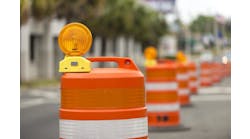The U.S. auto industry's home state of Michigan is preparing for the advent of self-driving cars by pushing legislation to allow for public sales and operation—a significant expansion beyond an existing state law that sanctions such vehicles for testing only.
Under a newly introduced package of bipartisan bills that would update 2013 laws to allow for the operation of autonomous cars on public roads without anyone at the wheel, tight "platoons" of smart commercial trucks could travel in unison at coordinated speeds. Also, the Detroit Three—General Motors, Fiat Chrysler and Ford—and other auto manufacturers would be authorized to run networks of on-demand self-driving vehicles.
It is a nod to the manufacturers' increasing efforts to reinvent themselves as "mobility" companies. GM this year invested $500 million in ride-hailing company Lyft and bought a startup that makes autonomous-vehicle software. Toyota recently announced an investment in Lyft's rival, Uber. Google, which is opening a self-driving tech development in the Detroit suburb of Novi, is partnering with Fiat Chrysler to test software in 100 minivans.
Michigan is among seven states with laws related to autonomous cars, while Arizona's governor has issued an executive order. Nevada was the first state to authorize self-driving vehicles in 2011, and California, Florida, North Dakota, Tennessee and Utah followed.
Michigan's DOT worked with legislators to develop the bills, which also have support from the state's economic development officials. Gov. Rick Snyder is "very supportive" of the concept, a spokesman said.
Consumer Watchdog, a California-based advocacy group that has voiced safety and privacy concerns over autonomous vehicles, criticized the Michigan legislation. President Jamie Court said a "line needs to be drawn" to ensure that a human driver can take control if something goes wrong.
One of the Michigan bills would end the human operator requirement, while another would help create a facility to test autonomous and wirelessly connected cars at highway speeds at the site of a defunct GM plant that once churned out World War II bombers.



